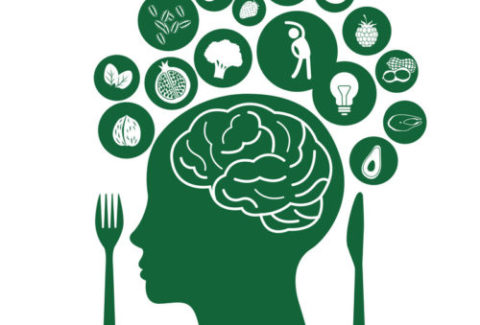‘Let Food Be Thy Medicine and Medicine Be Thy Food’: Unraveling the Meaning of Hippocrates’ Wisdom

‘Let Food Be Thy Medicine and Medicine Be Thy Food’: Unraveling the Meaning of Hippocrates’ Wisdom
Hippocrates (460 bce-375 bce), often referred to as the “Father of Medicine,” was a Greek physician whose teachings and principles have profoundly influenced the field of medicine and mental health throughout history[1]. Among his many renowned quotes, one particularly famous saying stands out, “Let food be thy medicine and medicine be thy food.” This powerful phrase encapsulates the profound wisdom that Hippocrates imparted regarding the intrinsic connection between nutrition and health. In this series of articles, we will be looking into this connection. In this first one, we delve into the meaning behind this timeless adage and explore the enduring relevance of his wisdom in modern-day healthcare.
The Essence of Hippocrates’ Words:
Hippocrates’ statement emphasizes the fundamental importance of nutrition in promoting and maintaining good health[2]. The phrase embodies the idea that the food we consume plays a pivotal role not only in nourishing our bodies but also in preventing and treating diseases. At its core, Hippocrates’ wisdom underscores what has been proven scientifically, time and time again, that a well-balanced and nutrient-rich diet serves as a potent form of preventive and therapeutic medicine.
Let us break this down:
- Prevention is the Best Medicine:
One interpretation of Hippocrates’ saying is that a healthy diet acts as a form of preventative medicine. By providing the body with the essential nutrients it needs, a wholesome diet strengthens the immune system, enhances organ function, and fosters overall well-being. This, in turn, reduces the risk of developing chronic diseases.[3]
- Nourishing the Body and Mind:
Hippocrates’ words acknowledge that food nourishes not only the physical body but also the mind[4]. Optimal nutrition benefits mental health, cognition, and emotional well-being. This makes food a vital component of holistic healthcare.
- The Healing Power of Food:
Beyond prevention, Hippocrates’ wisdom suggests that food possesses healing properties[5]. Specific nutrients found in natural foods can aid in the body’s natural healing processes and support recovery from illness or injury.
- Integrative Approach to Healthcare:
Hippocrates’ saying embodies the concept of integrative medicine and mental health, which seeks to combine conventional medical and mental health treatments with lifestyle interventions, including nutrition, to optimize patient outcomes.[6]
In addition to the scientific studies corroborating Hippocrates’ claim, why might his insight be so relevant today to our patients and clients?
Hippocrates’ wisdom remains profoundly relevant in contemporary healthcare for several reasons:
- With the growing prevalence of chronic diseases, such as obesity, diabetes, and heart disease, the importance of preventive medicine, including a healthy diet, is paramount.
- We have been talking about lifestyle, medicine, and mental health, which focuses on addressing the root causes of health issues through lifestyle interventions.
- This, indeed, aligns closely with Hippocrates’ teachings.
- Advancements in nutritional science continue to shed light on the intricate relationship between diet and health, further validating Hippocrates’ understanding of the healing power of food.
- Lastly, clinicians are increasingly recognizing the significance of a holistic approach to patient care[7], incorporating nutrition as a crucial component of overall well-being.
If you are a SWEET clinician, you are well acquainted with the transformative potential of translational research. The timeless wisdom of Hippocrates, “Let food be thy medicine and medicine be thy food,” has been extensively studied, underscoring the profound impact of nutrition on human health. As we navigate the complexities of modern healthcare, embracing the principles laid forth by the ancient Greek physician can lead us toward a more integrative, preventive, and holistic approach to patient care. Recognizing the healing and nourishing power of food, we can harness the potential of nutrition to promote better health and wellness for all.
What’s Next:
- Explore our ongoing Physical Wellness Certificate Course, where we delve into the role of nutrition in wellness. Our clinician attendees are eager to master and integrate this knowledge into their work with patients and clients. As per the SWEET Model, experiencing it firsthand, as clinicians, is crucial, and we will dedicate several weeks to this. Join us for this eye-opening course segment.
- Stay on the lookout for upcoming articles in this series, delving deeper into the world of nutrition and its impact on well-being.
- Gather more information on the role of nutrition in overall health and wellness, staying updated with the latest research and recommendations.
- Initiate more frequent conversations with your clients about nutrition, understanding potential barriers, and helping them overcome obstacles to optimal eating habits.
We acknowledge that habit change can be challenging, but motivation is a potent force that can be nurtured by guiding our patients through the stages of change. As clinicians, having awareness, understanding, insight, and knowledge about nutrition is key to inspiring positive transformations. This series aims to equip you with the essential tools, so you empower yourself and help your patients and clients do the same on their process to optimal well-being.
Until our next article, let us master how to continue our process of discovery and healing through the power of nutrition.
[1] Orfanos, C. E. “From Hippocrates to modern medicine.” Journal of the European Academy of Dermatology and Venereology 21.6 (2007): 852-858.
[2] Wegener, Gregers. “‘Let food be thy medicine, and medicine be thy food’: Hippocrates revisited.” Acta neuropsychiatrica 26.1 (2014): 1-3.
[3] Who, Joint, and FAO Expert Consultation. “Diet, nutrition and the prevention of chronic diseases.” World Health Organ Tech Rep Ser 916.i–viii (2003): 1-149.
[4] Rumiati, Raffaella I., and Francesco Foroni. “We are what we eat: How food is represented in our mind/brain.” Psychonomic bulletin & review 23 (2016): 1043-1054.
[5] Colbin, Annemarie. Food and healing: How what you eat determines your health, your well-being, and the quality of your life. Ballantine Books, 2013.
[6] Wisneski, Leonard, ed. The scientific basis of integrative health. Routledge, 2017.
[7] Hazarika, Mythili. “Holistic approach in mental health care.” Dysphrenia 5 (2014): 3-5.








